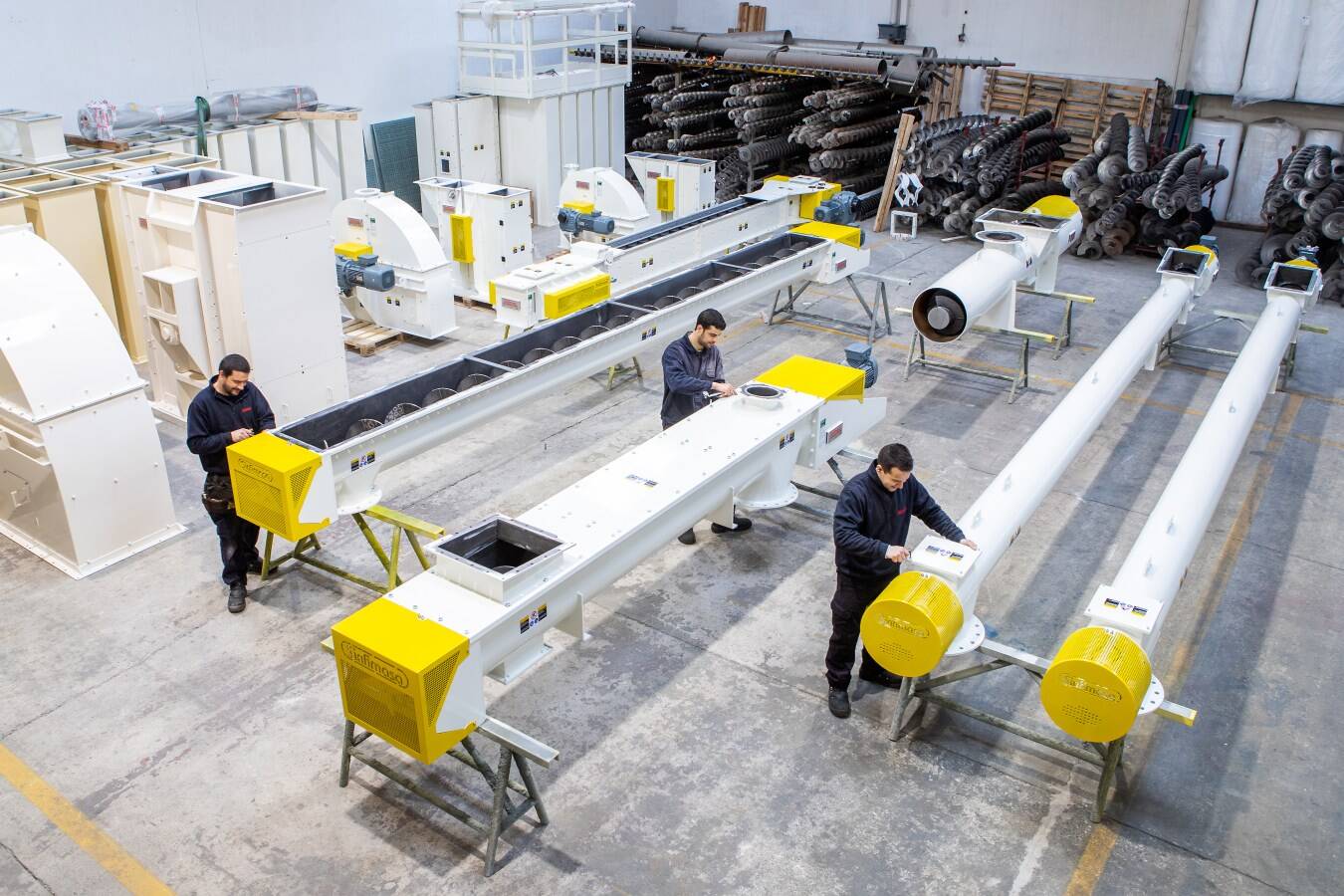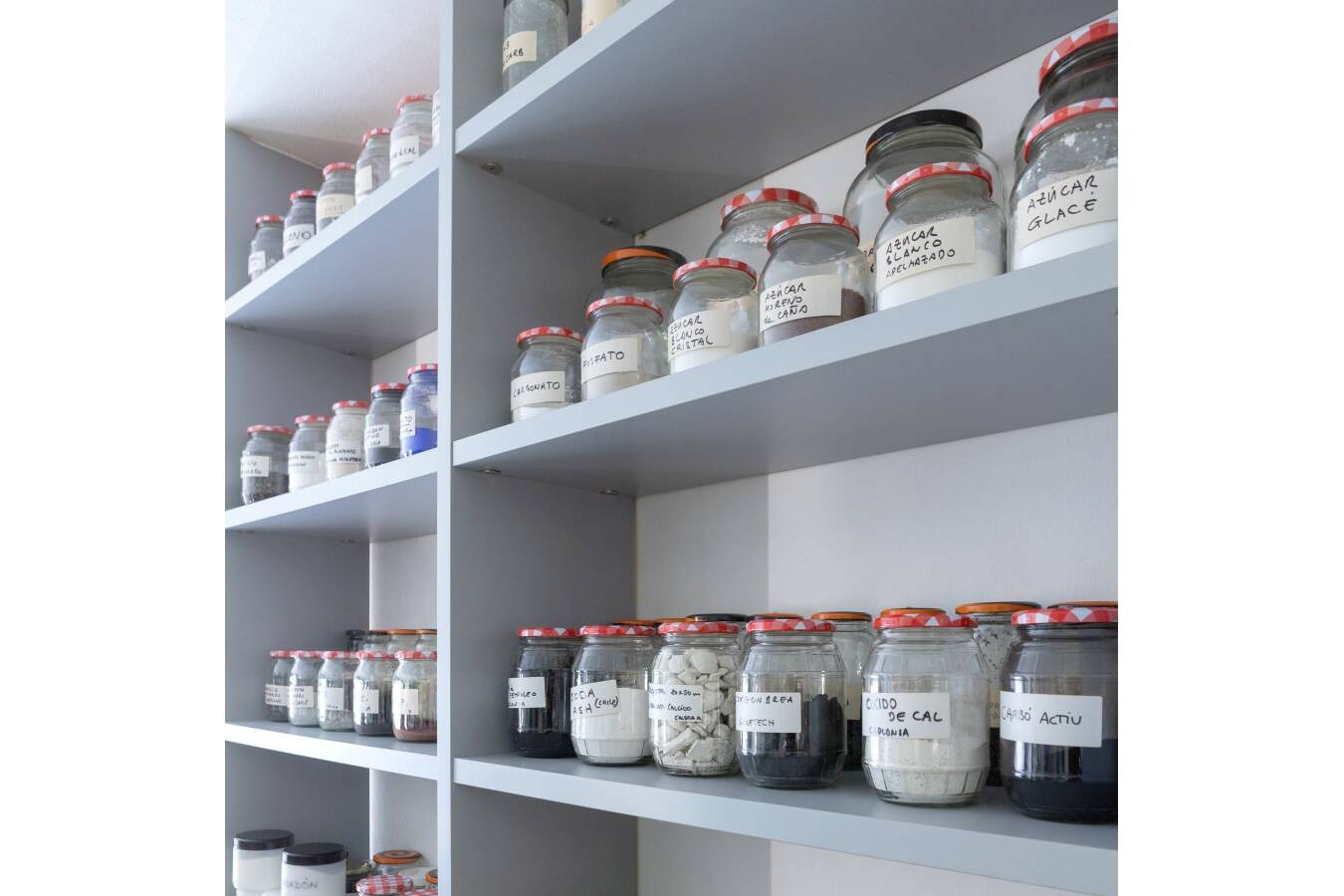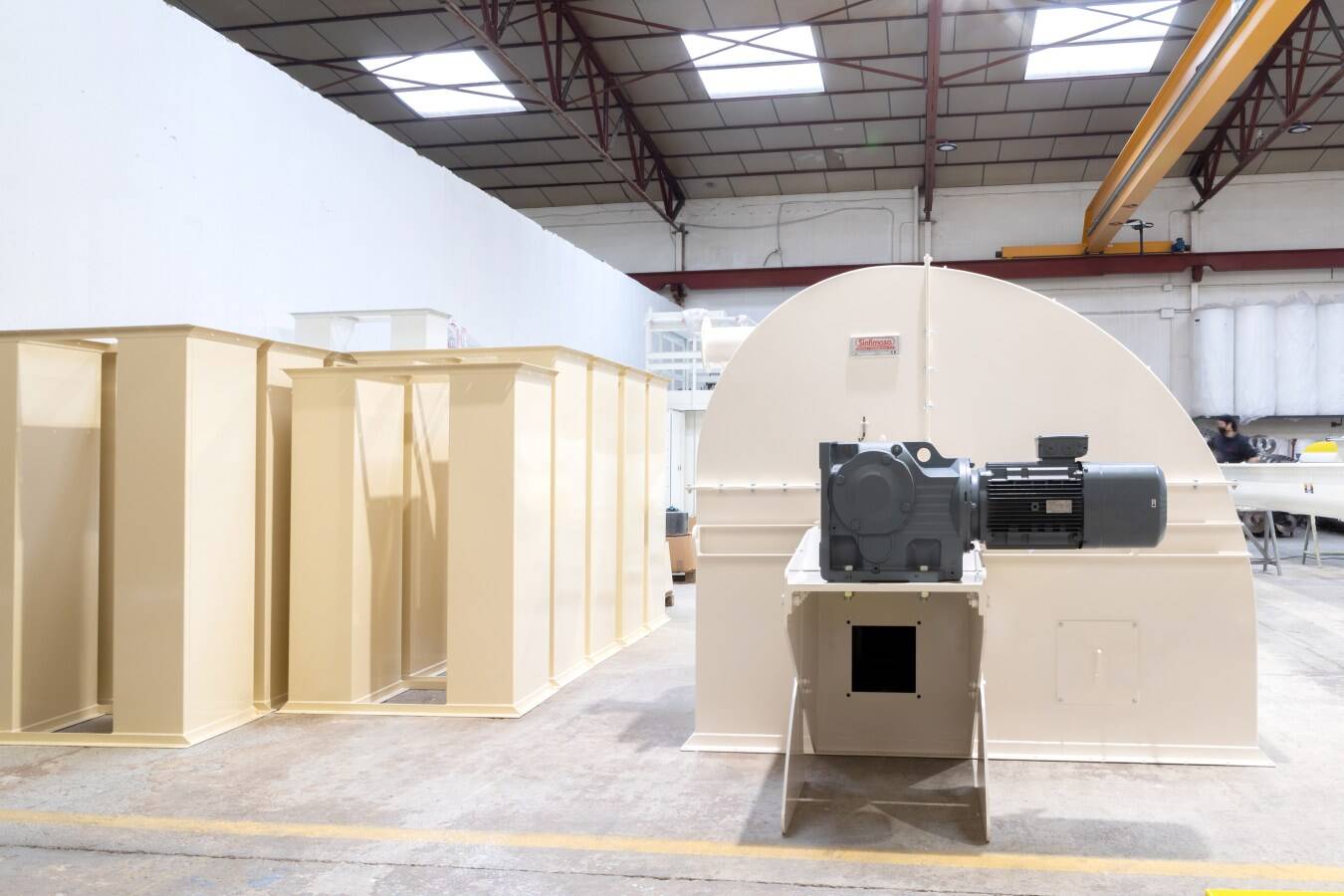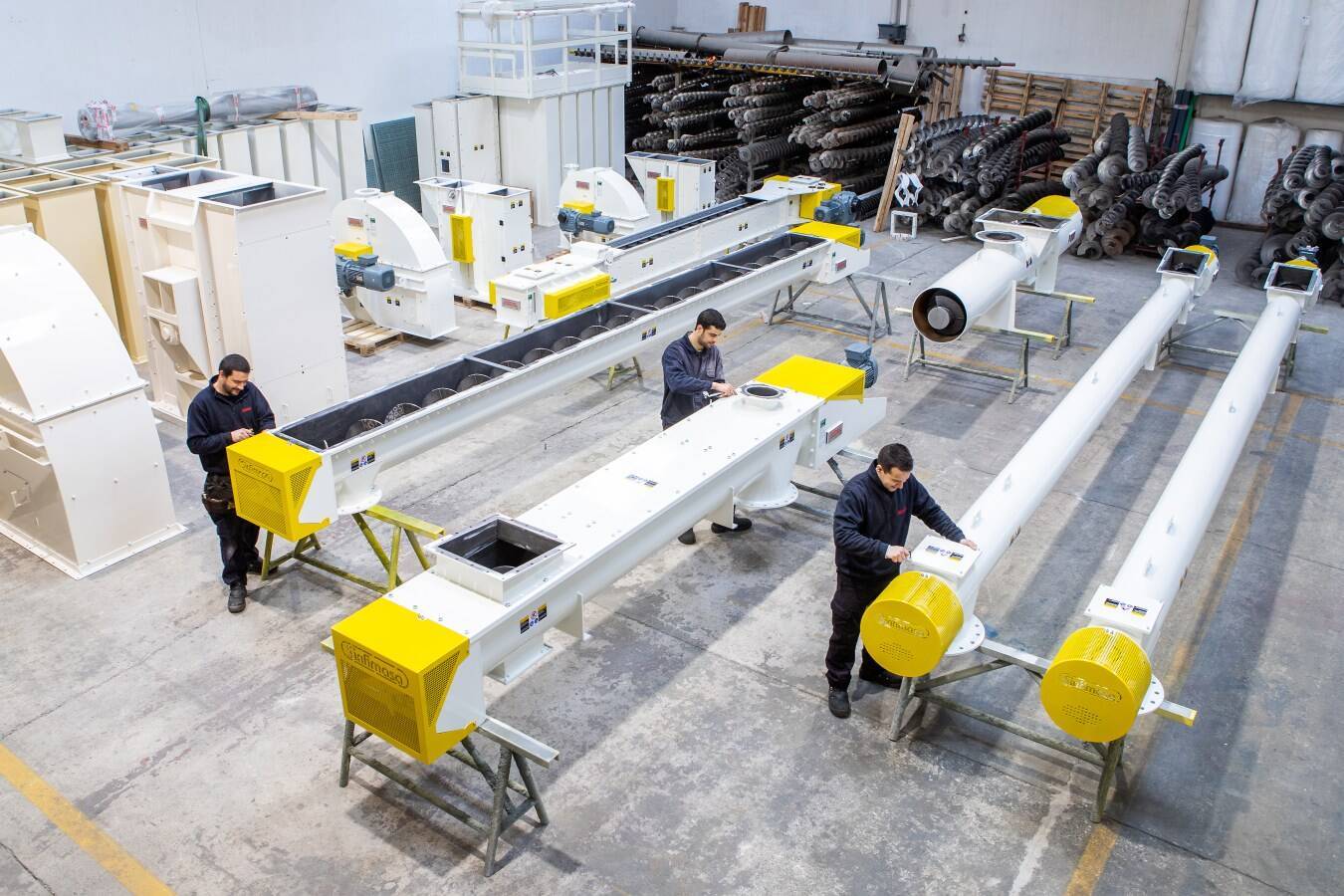Bulk Solids Conveyor Design
An efficient conveyor system for handling bulk solids requires one crucial step before selecting the type of conveyor. The most critical—and often most underestimated—step is the thorough analysis of the material to be conveyed. Deep knowledge of the product’s characteristics ensures not only a technically accurate solution but also greater durability, lower maintenance costs, and optimized industrial productivity.
Understanding the material to be conveyed
Each bulk material has unique physical properties that directly impact conveyor performance. A generic or modular design for a screw conveyor, bucket elevator, or chain conveyor may lead to operational failures, blockages, premature wear, or even unexpected production line shutdowns. The design must begin with a data-driven approach based on the product these conveyors will handle. Below are the key properties to study and the methodology:
Technical characterization of the material
- Bulk density
- Particle size distribution and shape
- Flowability, cohesion, and angle of repose
- Moisture content and fines
- Temperature
- Abrasiveness
Laboratory tests and pilot plant trials
- Particle size analysis
- Flow testing
- Angle of repose
- Abrasiveness and hardness
- Moisture and cohesion
- Full-scale pilot testing







